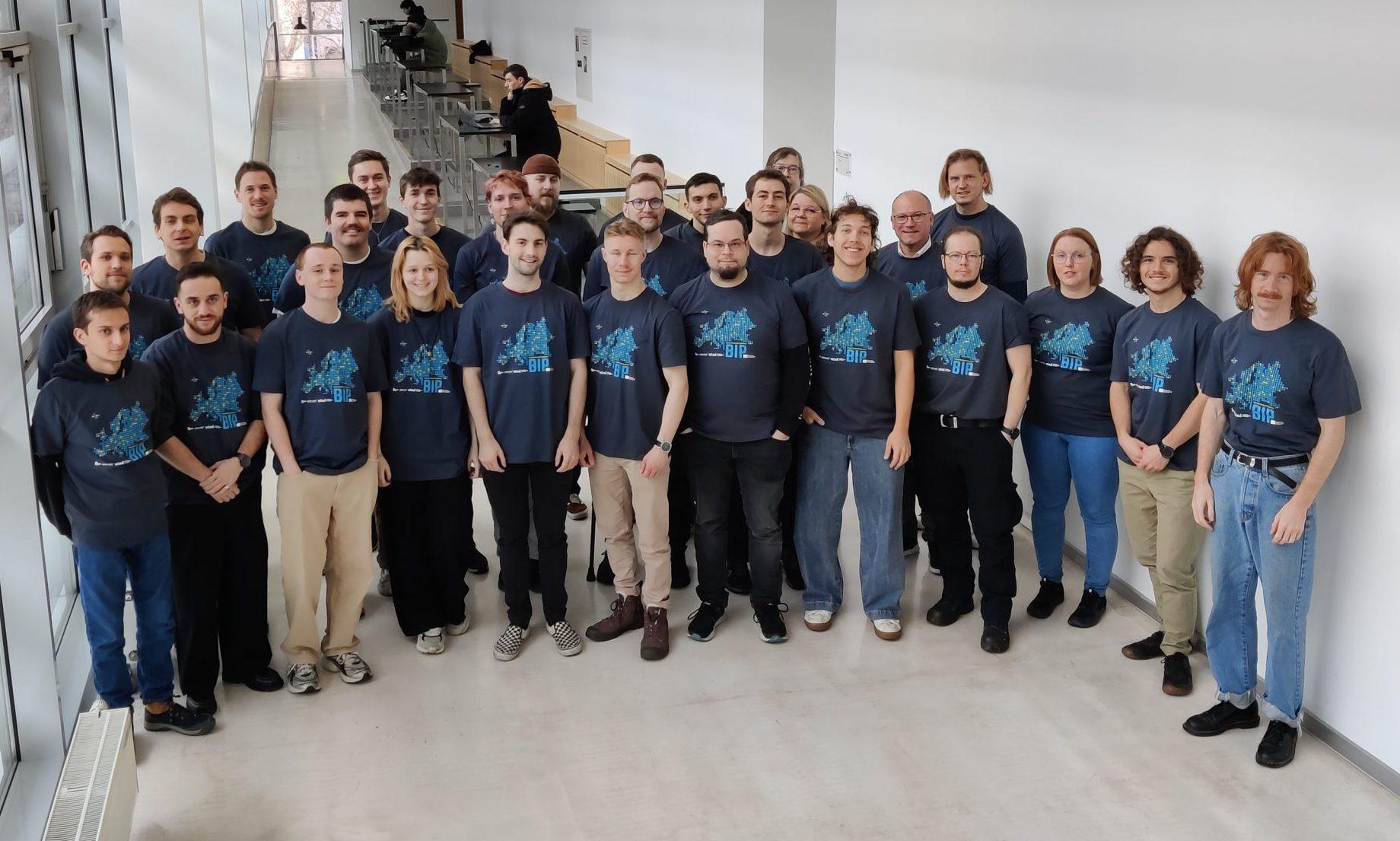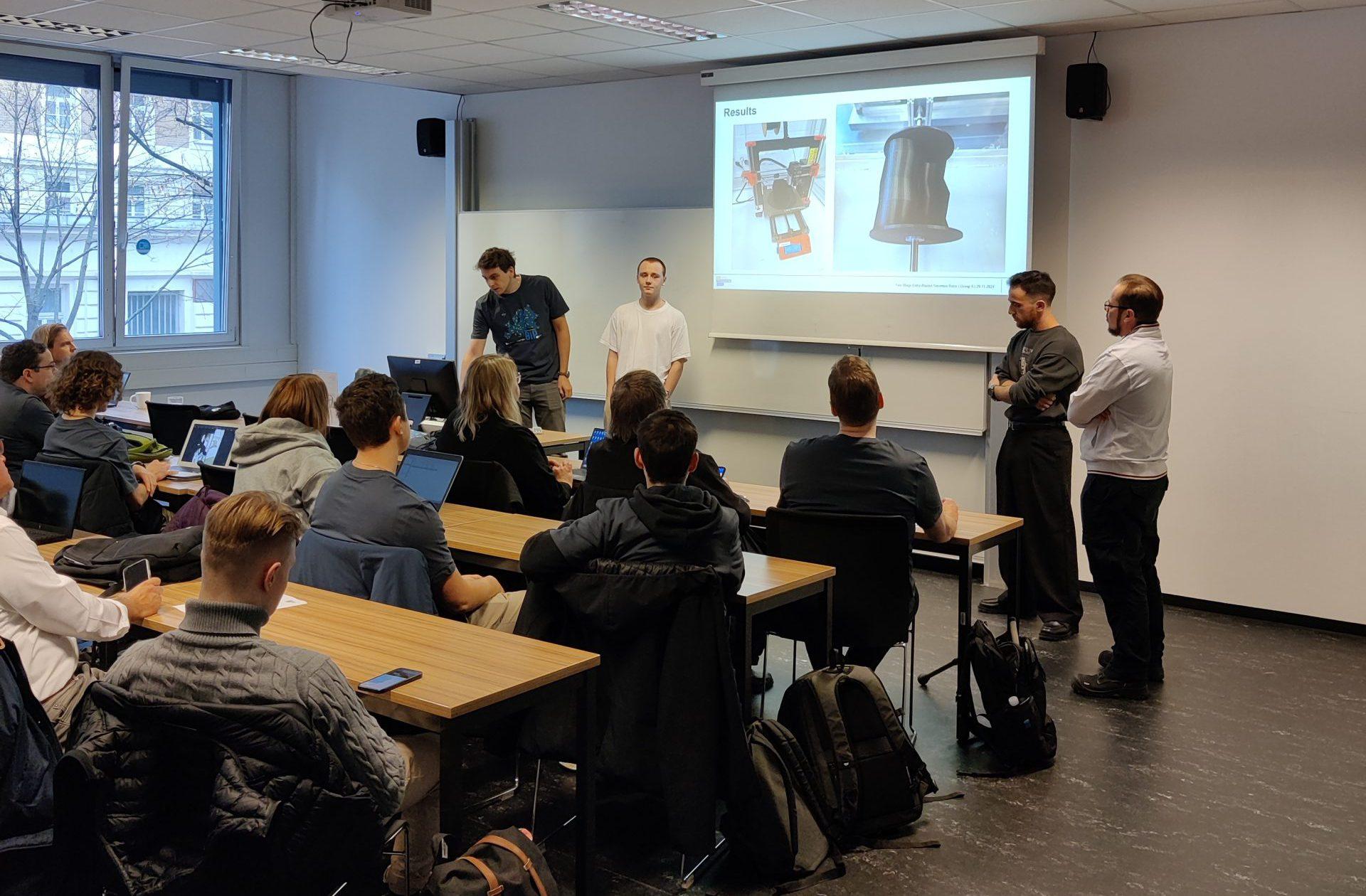Cooperative International Student Project (CIP) becomes Blended Intensive Programme (BIP): The project’s focus is on wind energy

11 December, 2024
In the Erasmus+ project, students from Austria, Finland and Portugal from UAS Technikum Wien, Lapland UAS and Universidade de Trás-os-Montes e Alto Douro are working on sustainable wind power.
Students from Lapland University of Applied Sciences (LUAS), Universidade de Trás-os-Montes e Alto Douro (UTAD) and University of Applied Sciences Technikum Wien (UAS TW) are once again working on Savonius rotors as part of the seventh Cooperative International Student Project (CIP). For the first time, the student project will be held as a Blended Intensive Programme (BIP), which offers more opportunities for Erasmus+ funding for the students.
The BIP will be organised by the University of Applied Sciences Technikum Wien (UASTW) as part of the Bachelor’s program Renewable Energies of the Faculty of Industrial Engineering, the Lapland University of Applied Sciences (Lapland UAS) and the Universidade de Trás-os-Montes e Alto Douro (UTAD) in the winter semester 2024/25.


The project is again focussing on wind energy, in particular the Savonius rotor – a vertical axis wind turbine. The Savonius rotor, named after the Finnish engineer Sigurd Savonius, is known for its unique design, which allows it to operate efficiently even in turbulent or frequently changing wind conditions. This adaptability makes it suitable for various applications and especially valuable for decentralised energy generation, which is particularly suitable for situations where wind directions are unpredictable, such as in urban environments with complex wind patterns due to buildings and their structures. Therefore, this type of energy generation is often used in off-grid scenarios and small wind energy projects.
As part of the project, various configurations of the Savonius rotor were produced in the 3D Printing Laboratory at Lapland UAS in the run-up to the attendance week in Vienna, which were then extensively tested in the FHTW wind tunnel in the EnergyBase in Vienna at the end of November.
During the attendance week in Vienna, which took place at the FHTW from 25 November to 29 November, the student teams not only had the opportunity to test the rotors but also to attend workshops on presenting in English and to work on the project presentations and interim reports. The Vienna week was accompanied by a city tour and a joint dinner.

In January 2025, the student project also plans to test the various rotors at the UTAD in Portugal for efficient solutions for charging a battery from an energy generation perspective. Various systems for converting mechanical energy into electrical energy will be analysed.
The student project will be held again next year. The project is particularly interesting for students who are unable to spend a longer period abroad for professional or private reasons but would still like to gain international experience.
Further Links:
Bachelor’s degree program in Renewable Energies – UAS Technikum Wien
Faculty of Industrial Engineering – UAS Technikum Wien
EnergyBase
Lapland University of Applied Sciences (Lapland UAS)
Universidade de Trás-os-Montes e Alto Douro (UTAD)
